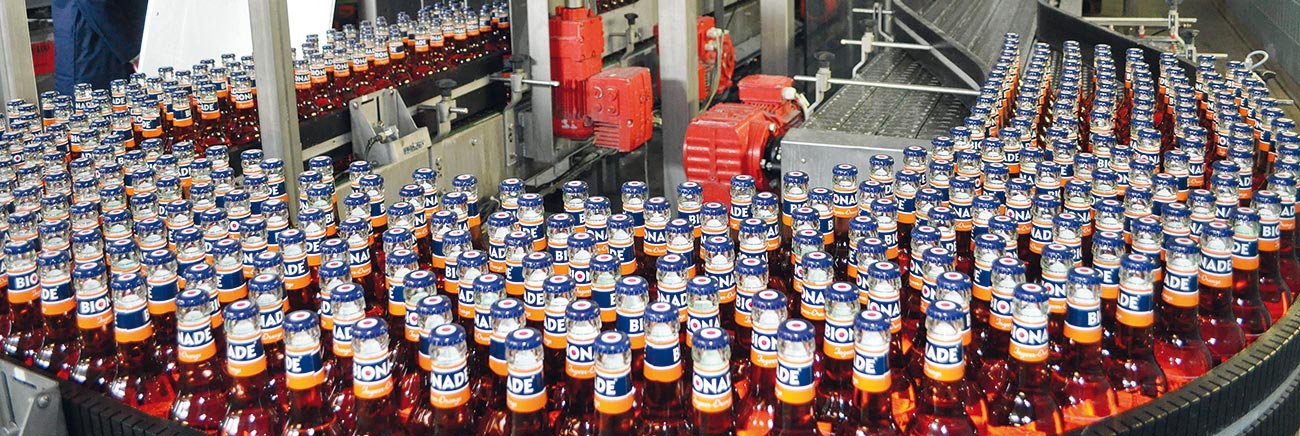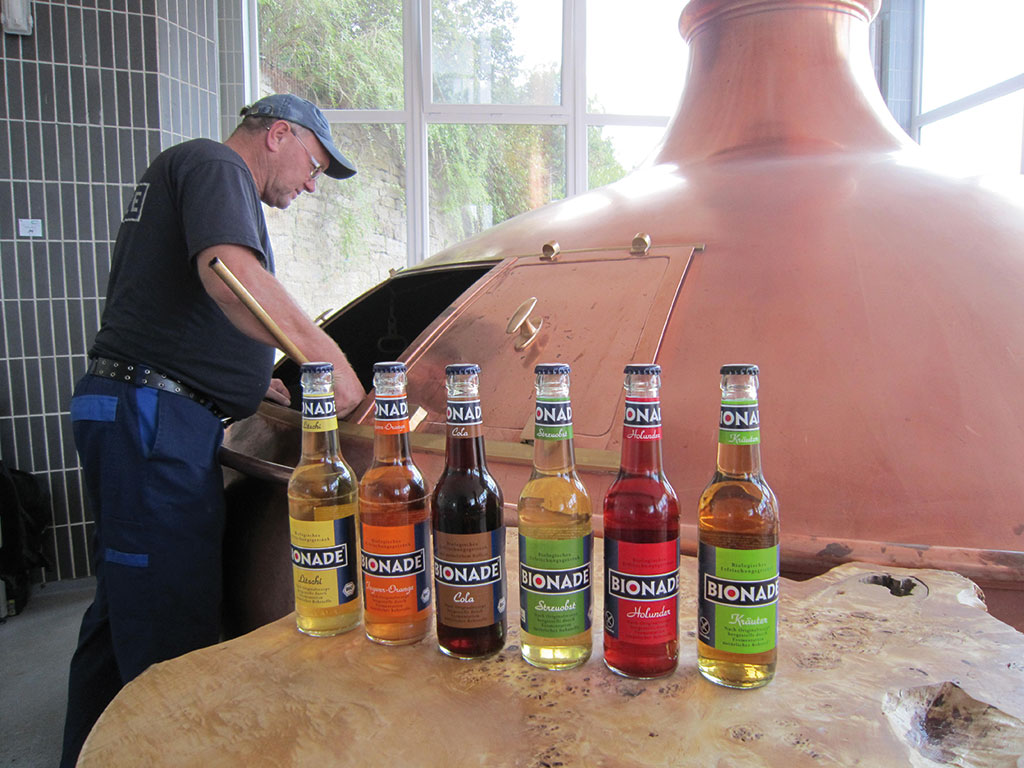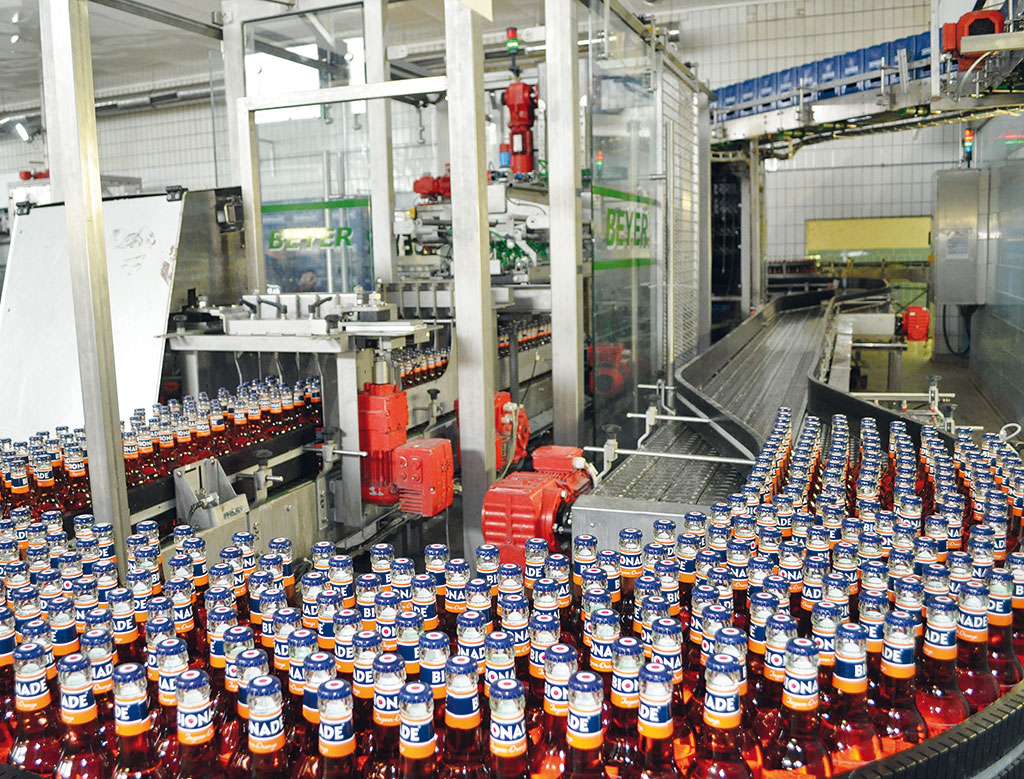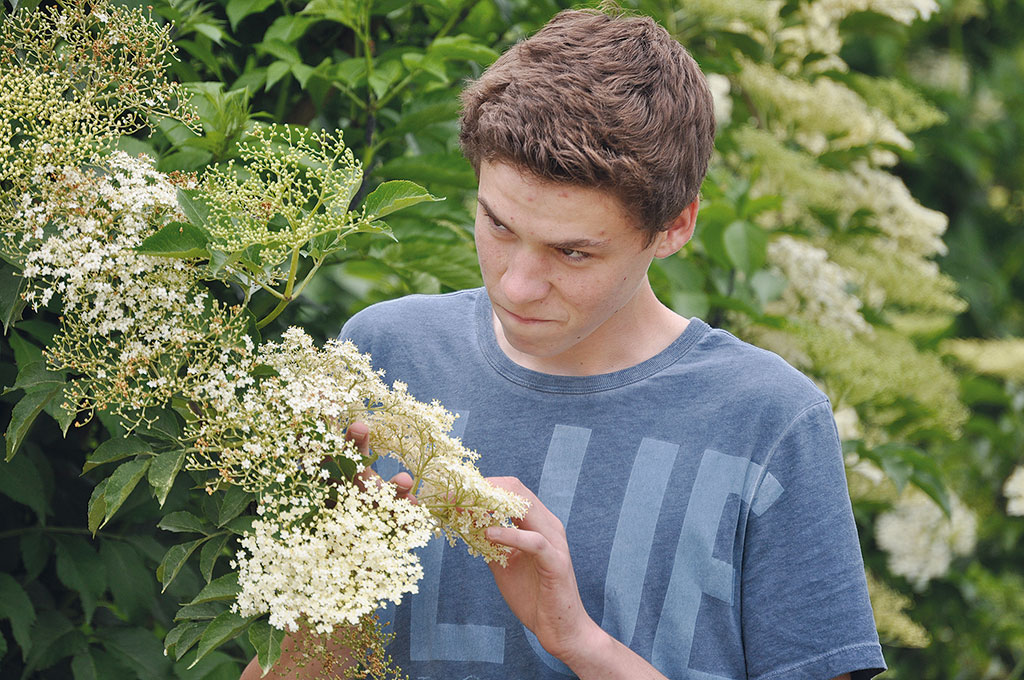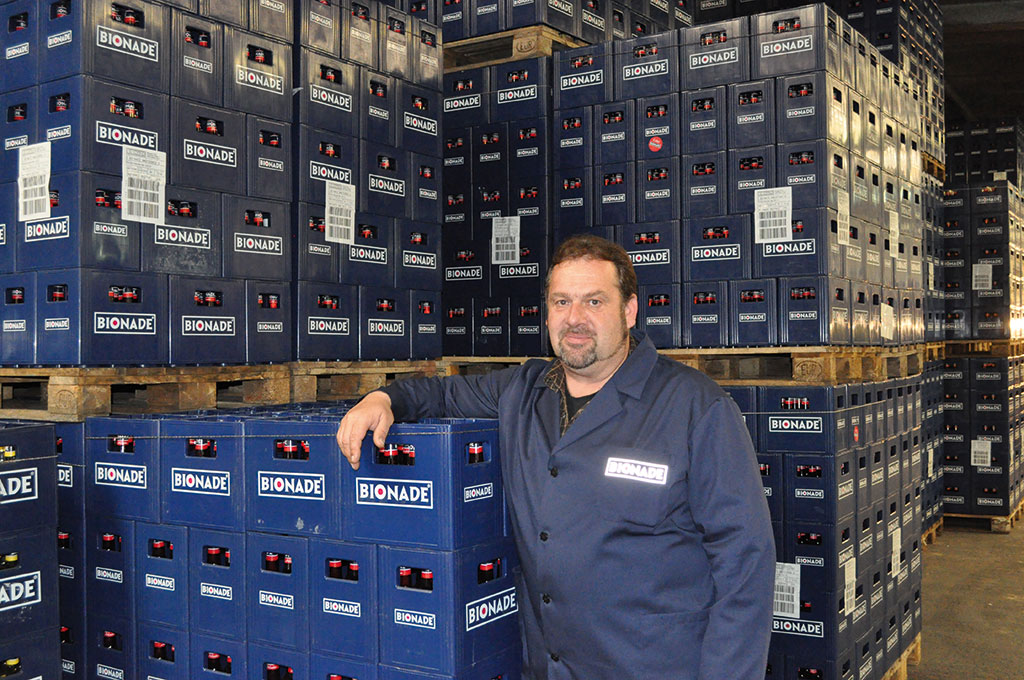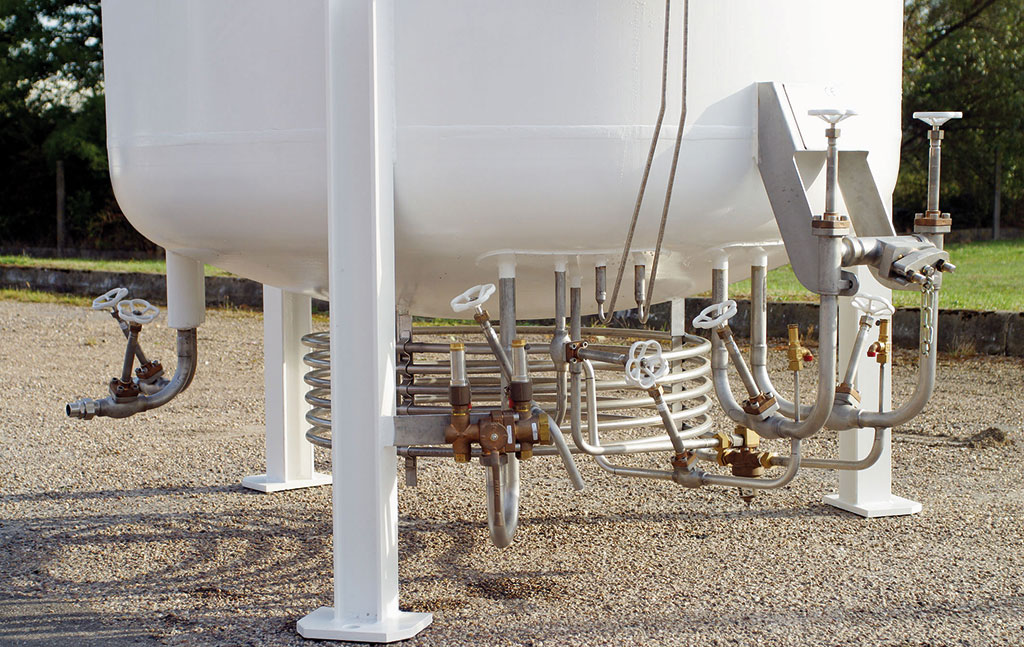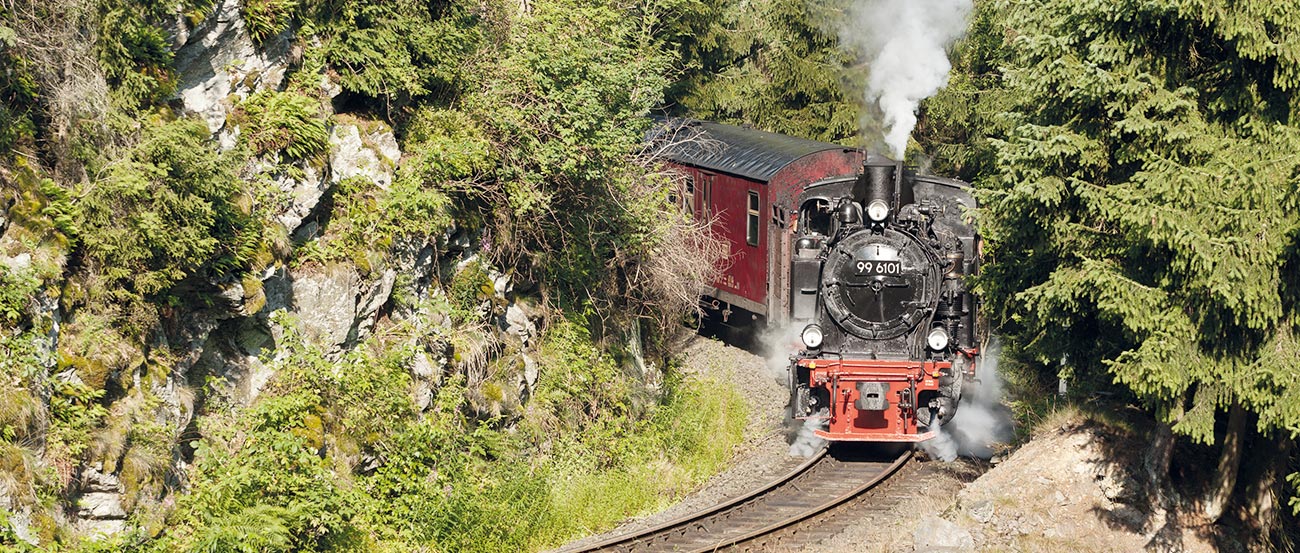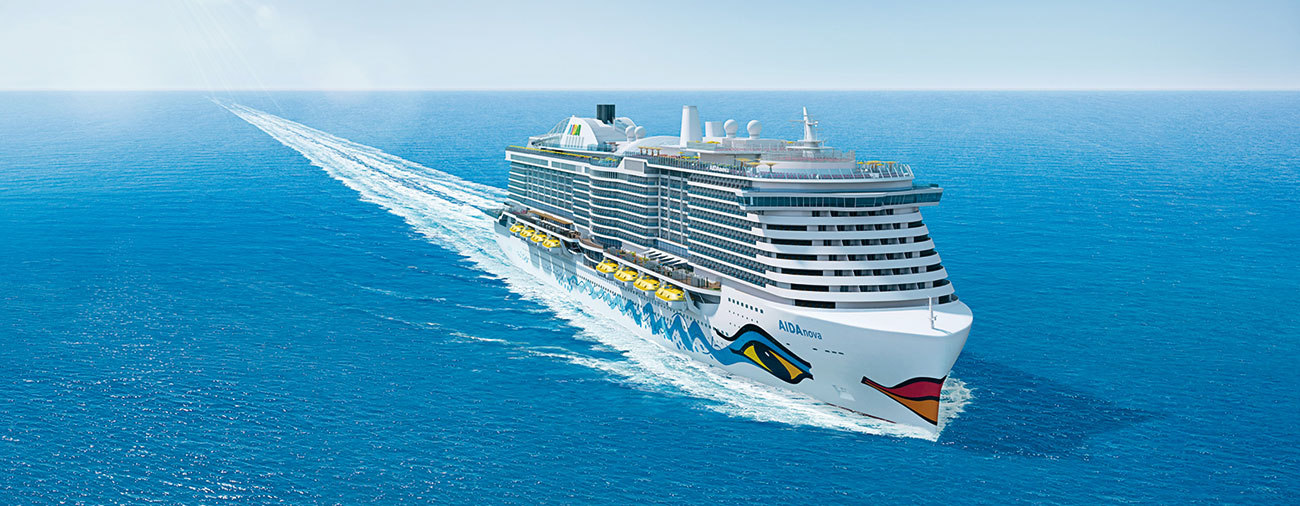Alternative soft drinks from the Rhön area with carbon dioxide
Thousands of them can be found on factory premises: gas tanks equipped with HEROSE valves, for the gaseous media which are necessary for the manufacture of various products. The Linde carbon dioxide tank in Ostheim near the Rhön provides an especially sparkling effect. There, Bionade brews its soft drinks with flavours such as elderberry, herbs, or mixed fruit.
Bionade relies on nature – and does not use chemicals, colourings or preservatives. 300 tons of carbon dioxide are needed in Ostheim every year, from a tank with HEROSE valves
We take a tour of the factory with Wolfgang Bufe, one of the two managing directors. He explains why the soft drinks from the Rhön were more healthy than those of his competitors: “Because we only use natural ingredients and add less sugar.” Unlike conventional soft drinks, here the lemonades are not simply made from a mixture of water, sugar, citric or phosphoric acid and usually artifi cial aromas. The beverages are made naturally with a sophisticated fermentation process and similar to beer, are brewed from water and malt according to the company’s own purity law. Wolfgang Bufe: “The fact that no alcohol is produced is due to the enzyme glucoseoxydase, which converts part of the sugar into gluconic acid, a mild, organic acid.”
The effect of this enzyme was discovered by Dieter Leiphold, the founder of the company. As Wolfgang Bufe explains, he could not understand why men’s favourite drink, beer, is protected by a purity law, while children and young people always have to consume traces of chemicals in soft drinks. The mild gluconic acid has a further advantage. Bufe: “A good soft drink requires sugar and acid in the right proportions. The stronger the acid, the more sugar has to be added. We use less to taste refreshing – and less sugar means less calories.” Carbon dioxide is essential to give the soft drinks their sparkling taste. Bufe: “We use about 300 tons of Biogon C per year.” The carbon dioxide tank in the courtyard is fully equipped with HEROSE valves: with safety valves to prevent excess pressure, with shut-off valves and changeover valves, with fill cluster, an overfill protection and a pressure regulator. Bufe: “Other safety valves are installed in the high-speed steam generator for the fermenters, which operate with a pressure of 0.7 to 0.8 bar.”
Raw materials from the region
The Franconian company is not just a pioneer in the field of production: Wherever possible, the raw materials come directly from the Rhön area. Because of this, the company has known almost all of its suppliers personally for many years. For example the Ritter family, who have grown elderberries only a few kilometres away since 2005. Ingrid Ritter: “Bionade paid for the first 500 trees. The company takes our entire harvest every year at a very fair fixed price, regardless of the actual quantity.” The Ritter bio farm now grows 3700 elderberry trees on 7 1/2 hectares – and quince on a further 2 1/2 hectares, which are part of the mixture for the new mixed fruit variant of the beverage producer. Managing Director Wolfgang Bufe: “All of our ingredients are 100 percent natural and are exclusively obtained from bio-certified raw materials. In the sense of the Bio ordinance, we do not use any artificial colourings, preservatives and sweeteners.”
The Bionade GmbH in Ostheim, in the Bavarian region of the Rhön biosphere reserve was founded in 1995 as a spinoff from the local Peter private brewery and now belongs to the Radeberger Group.
(c) Photos: Carsten Wurr
